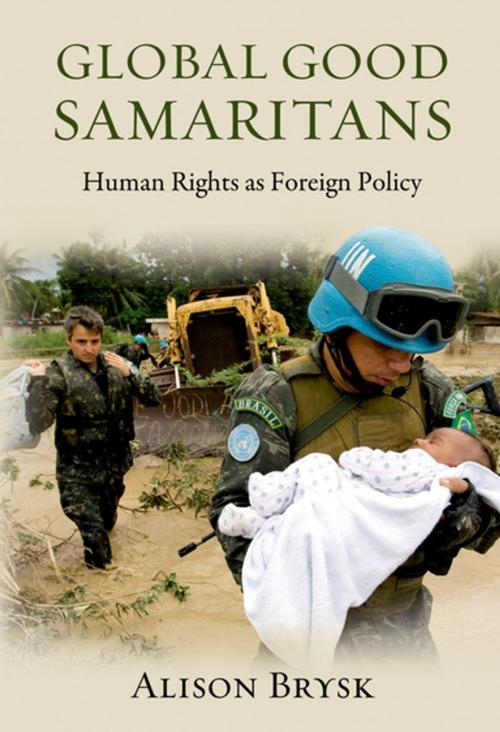Global Good Samaritans
Human Rights as Foreign Policy
Nonfiction, Social & Cultural Studies, Political Science, Government, Social Policy, International, International Relations| Author: | Alison Brysk | ISBN: | 9780199888757 |
| Publisher: | Oxford University Press | Publication: | March 17, 2009 |
| Imprint: | Oxford University Press | Language: | English |
| Author: | Alison Brysk |
| ISBN: | 9780199888757 |
| Publisher: | Oxford University Press |
| Publication: | March 17, 2009 |
| Imprint: | Oxford University Press |
| Language: | English |
In a troubled world where millions die at the hands of their own governments and societies, some states risk their citizens' lives, considerable portions of their national budgets, and repercussions from opposing states to protect helpless foreigners. Dozens of Canadian peacekeepers have died in Afghanistan defending humanitarian reconstruction in a shattered faraway land with no ties to their own. Each year, Sweden contributes over $3 billion to aid the world's poorest citizens and struggling democracies, asking nothing in return. And, a generation ago, Costa Rica defied U.S. power to broker a peace accord that ended civil wars in three neighboring countries--and has now joined with principled peers like South Africa to support the United Nations' International Criminal Court, despite U.S. pressure and aid cuts. Hundreds of thousands of refugees are alive today because they have been sheltered by one of these nations. Global Good Samaritans looks at the reasons why and how some states promote human rights internationally, arguing that humanitarian internationalism is more than episodic altruism--it is a pattern of persistent principled politics. Human rights as a principled foreign policy defies the realist prediction of untrammeled pursuit of national interest, and suggests the utility of constructivist approaches that investigate the role of ideas, identities, and influences on state action. Brysk shows how a diverse set of democratic middle powers, inspired by visionary leaders and strong civil societies, came to see the linkage between their long-term interest and the common good. She concludes that state promotion of global human rights may be an option for many more members of the international community and that the international human rights regime can be strengthened at the interstate level, alongside social movement campaigns and the struggle for the democratization of global governance.
In a troubled world where millions die at the hands of their own governments and societies, some states risk their citizens' lives, considerable portions of their national budgets, and repercussions from opposing states to protect helpless foreigners. Dozens of Canadian peacekeepers have died in Afghanistan defending humanitarian reconstruction in a shattered faraway land with no ties to their own. Each year, Sweden contributes over $3 billion to aid the world's poorest citizens and struggling democracies, asking nothing in return. And, a generation ago, Costa Rica defied U.S. power to broker a peace accord that ended civil wars in three neighboring countries--and has now joined with principled peers like South Africa to support the United Nations' International Criminal Court, despite U.S. pressure and aid cuts. Hundreds of thousands of refugees are alive today because they have been sheltered by one of these nations. Global Good Samaritans looks at the reasons why and how some states promote human rights internationally, arguing that humanitarian internationalism is more than episodic altruism--it is a pattern of persistent principled politics. Human rights as a principled foreign policy defies the realist prediction of untrammeled pursuit of national interest, and suggests the utility of constructivist approaches that investigate the role of ideas, identities, and influences on state action. Brysk shows how a diverse set of democratic middle powers, inspired by visionary leaders and strong civil societies, came to see the linkage between their long-term interest and the common good. She concludes that state promotion of global human rights may be an option for many more members of the international community and that the international human rights regime can be strengthened at the interstate level, alongside social movement campaigns and the struggle for the democratization of global governance.















